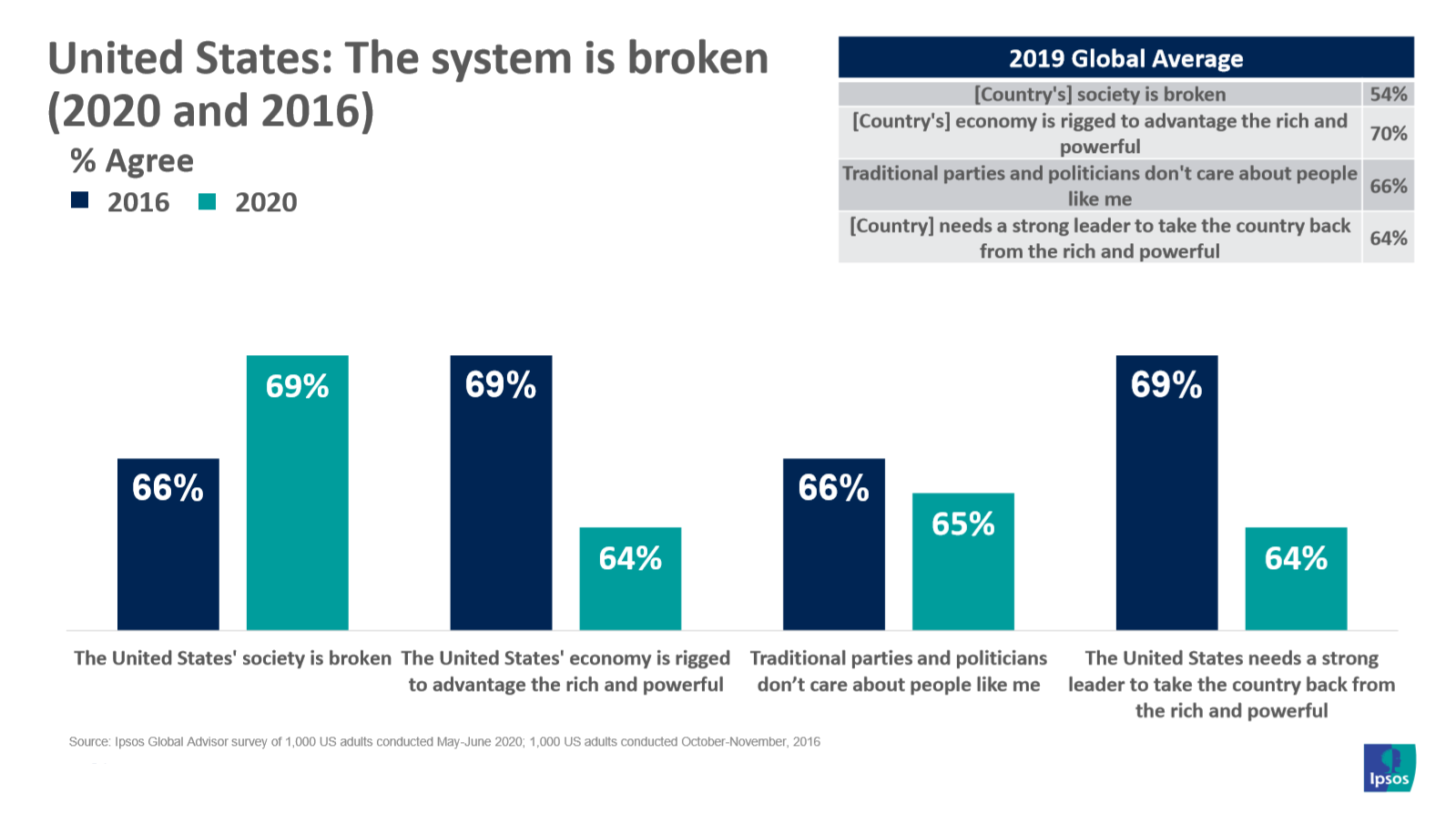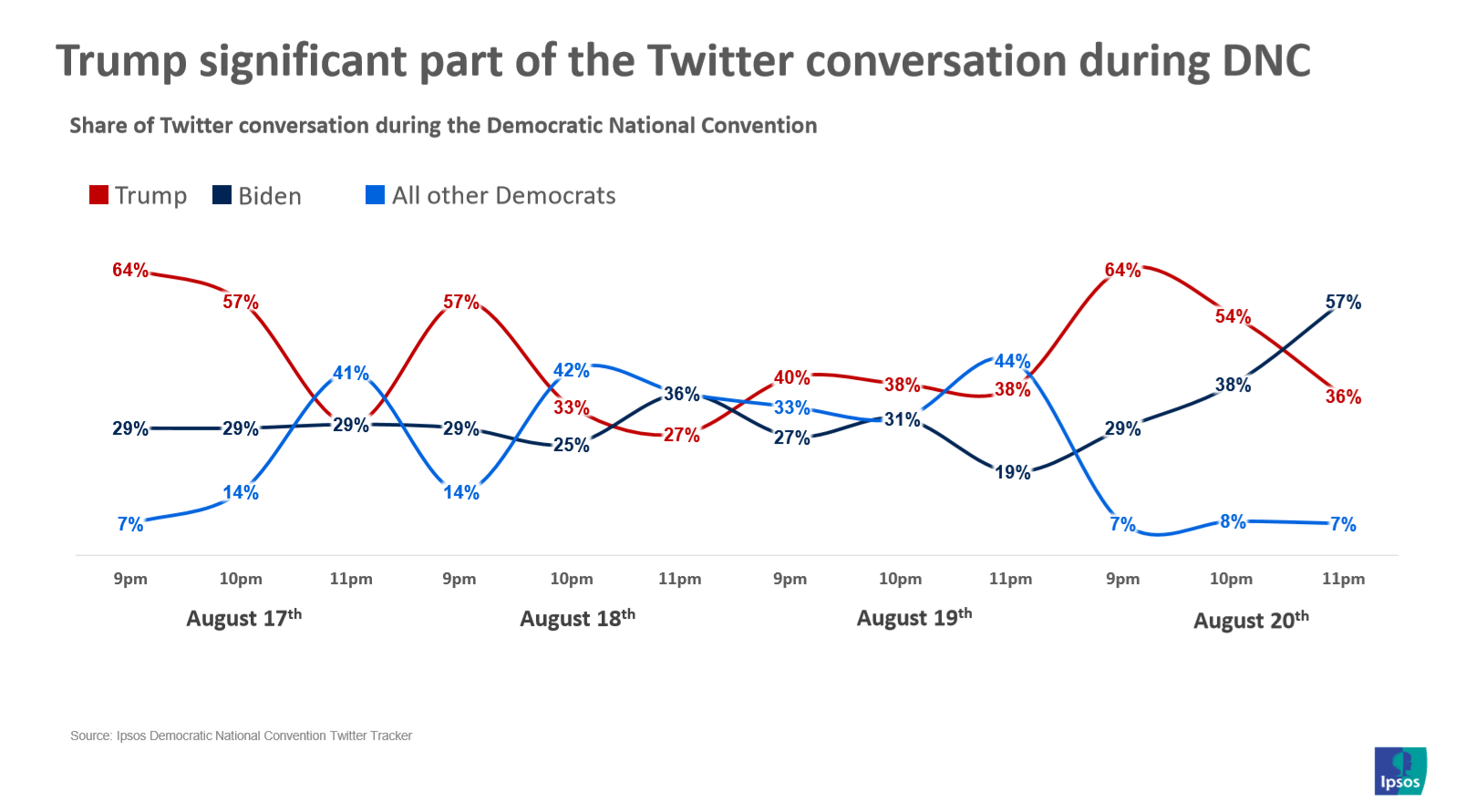Cliff's Take: Will Americans Accept the Outcome in 2020?

Only 74 days until election-day. The Democratic National Convention is done; the Republicans will have theirs next week. Then, we are off to the races; the election season officially/unofficially begins.
People often ask me my own political leanings. I often say—mostly in jest—that I am a political agnostic. When feeling especially cheeky, I say a political nihilist, but that is not quite right. Instead, I see swings from right to left and left to right as a healthy thing for democracy. The marketplace of ideas is what makes us great. For me, unfettered expression of the popular will and the subsequent peaceful transfer of power is key. This is what separates us from a Shakespearian play full of political bloodlust and intrigue—violence does not decide who governs today.
I have worked on and analyzed hundreds of elections all over the world. Some more democratic; others less so. But I still get that dopamine rush—that sense of oneness— on election-day.
This brings me back to our presidential election here in the U.S. My greatest fear—what really keeps me up at night—is whether America will accept the electoral outcome as legitimate. The most important ritual—the lynchpin of legitimacy—is the peaceful ceding of power by the losing candidate. This is critically important to the health of any democracy.
If Trump loses, will he do this? Many believe he will not. And the Democrats? What if Biden loses the electoral college but wins the popular vote? How will the party and the nation respond this time? Think about it. This scenario has been little explored but is equally worrisome. Let’s prepare ourselves for the uncertainty to come.
Below I detail the polling data—both old and new—that give me pause.
- The system is broken. The forces that produced Trump and our anti-establishment world persist. The angst is global. Look at the data. Yes, the word ‘rigged’ has resonance. People don’t see the system working for them. Can the election outcome in the U.S.—whether red or blue—be perceived as legitimate, or even meaningful, in a context like this?

- Never the twain shall meet. The data point below scares me, particularly as it predates COVID-19 and the election—it portends a crisis of legitimacy. It doesn’t matter who takes the White House in November. Whoever wins is sure to be met with absolute disdain from the opposing side. Of course, partisanship explains this. If you are red and I am blue, I don’t like you. And vice versa. But without consensus, how can we move forward as a nation?

- Widespread angst about our election machinery. A few additional data points to justify my fear. American see illegitimacy in every nook and cranny of our electoral system. Republicans are more worried about imaginary voters; Democrats more so about access and voter suppression. All will undermine the legitimacy of the outcome; all have power because they’re seen as real. Here, perception is king. Looks like we will have a legitimacy problem.

- Vote-by-mail is our Achilles heel. COVID-19 has modified our world; most of us see only threat beyond our doors. Voting by mail is one strategy to mitigate such risk. But many—especially Republicans—see it wrought with potential fraud. And if our election comes down to a few mail-in votes? Be prepared for a fight. Trump and Republicans have upped the rhetorical ante. And Democrats have raised them. They now are calling on the base to cast their vote early. This is our tribal world—a political war over the basic mechanics of democracy.

- Attention wars. The DNC was the Democrats' time to shine. There should be should a significant bump for Biden after this event. But will it be so this time? Unclear—look at the data below. See how Trump won out over the Dems in share of conversation for most of each night. He is a spoiler – controlling the narrative despite not being an officially sanctioned part of the proceedings. Will his Twitter sniping translate into votes at the ballot box? We will see.

Sorry all. Didn’t mean to be so dark. But our crisis of legitimacy is real. Irrespective of whatever partisan jersey you wear, this is our collective mess. For a further discussion of the election legitimacy issue, see my C-SPAN interview last year. For an electoral round up, listen to my interview this week with the Morning Briefing with Tim Farley. As always, be safe and be sane.
For more information, please contact:
Clifford Young
President, U.S.
Public Affairs
+1 202 420-2016
[email protected]
For more information on COVID-19 please click here
About Ipsos
Ipsos is now the third largest market research company in the world, present in 90 markets and employing more than 18,000 people.
Our research professionals, analysts and scientists have built unique multi-specialist capabilities that provide powerful insights into the actions, opinions and motivations of citizens, consumers, patients, customers or employees. Our 75 business solutions are based on primary data coming from our surveys, social media monitoring, and qualitative or observational techniques.
“Game Changers” — our tagline — summarizes our ambition to help our 5,000 clients to navigate more easily our deeply changing world.
Founded in France in 1975, Ipsos is listed on the Euronext Paris since July 1st, 1999. The company is part of the SBF 120 and the Mid-60 index and is eligible for the Deferred Settlement Service (SRD).
ISIN code FR0000073298, Reuters ISOS.PA, Bloomberg IPS:FP



